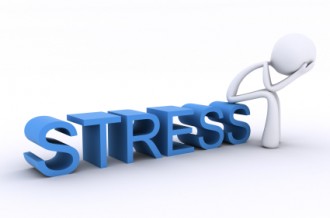How to Control Your Emotions
12.05.10
Controlling your emotions can be key to feeling peace and finding contentment. But when you’re angry, sad, lonely or worried, how do you get a handle on what you are feeling? Atlanta-based psychologist Dr. Mary Gresham gives us ways to take action and conquer our emotions.
Cotton Candy: How do you know when your emotions are out of control?
Dr. Mary Gresham: When your emotions are running your life, that’s when you really need to stop and take a look. [For example] if you’re anxious, your anxiety begins to control what you should do and not do.
If you find yourself engaging in emotional activities, such as cutting off friendships impulsively, you end things too quickly, make decisions too quickly based on emotion only, then you are going to need to look at that [behavior] and develop some other ways to handle your emotions.
One of the best ways to handle emotions is to float it. In other words, if someone makes a request of you that makes you angry, tell them, “I’ll have to get back to you on that.” Then [leave], take a few deep breaths, and wait for the emotional tsunami to reside. Then make your decision. And then go back to the person.
There are two areas you have to work with when you’re making decisions and choices, or you’re responding to someone. You have to think about your response, and then you have to integrate that feeling and emotion.
CC: Is there anything people can say or do for themselves to gain control of how they are feeling?
Dr.MG: Slow down and breathe deeply.
CC: Can we count on other people to help us control our emotions?
Emotional self management is a very important life skill. You really need to learn how to manage [your emotions] in the long run for yourself. But in the short run, if you want to call a friend because you want to vent some anger or you want to talk to them about your anxiety or fear, that’s useful.
However, when your friends begin to feel burdened because you’re not handling your own emotions, then it’s time for you learn the skills of self management and how to talk yourself through self dealings. You have to act wisely instead of impulsively.
CC: Is controlling your emotions simply a decision?
Dr.MG: Yes, that’s correct. You can manage and control your own feelings. It’s an inner process, like any other process, just like thinking. You can control your own thoughts. You can control your own feelings. Make a decision and decide not to be angry anymore.
You can control your own feelings. Make a decision and decide not to be angry anymore.
You don’t want to wipe [how you feel] out completely because emotions are valuable guides about what is occurring. [Emotions] are one source of information about what is happening to us. But they are not the whole story. They’re just one avenue of important information of what we need to look at.
CC: Do most people have the ability to control their emotions?
Dr.MG: Everyone has the ability. Not everyone has the skill. There’s a big difference between what is possible and what people choose to work on and develop as a life skill. But emotional self management is a learned life skill.
CC: How do you gain the skill of “emotional self management?”
Emotions are instantaneous … reactions within your body. And people experience it differently. When I get angry, I get a knot in my stomach. Again, breath and calm yourself down. Reducing the physiological experience is the first step. That’s the body part of it. Then you integrate what you just learn about yourself. [Admit to] yourself, “Wow, this person just really [made me angry.] I wonder what that’s about?” You calm yourself down, and then use your thinking to help yourself understand why you’re feeling the way you do. And then make a decision to what you will or won’t do with that feeling. It’s a really important process.
CC: How do you know when you need professional help with your emotions?
Dr.MG: If you are making personal, impulsive choices based on your emotions, then you need some professional help. If you are acting on impulse, then much of the time in your life is going to become more chaotic and less than what you want it to be.
CC: Are there any types of food that can calm our emotions and our nerves?
Dr.MG: Yes, there are calming, comfort foods. Most of them are very high in carbohydrates. If you only use that [solution] every once in a while, it’s not bad. But over time, it’s not a very reliable method of self management. It can come with negatives, such as gain a lot of weight.
CC: What types of carbohydrates are you referring to?
Dr.MG: Pasta, breads, potatoes, cookies, just anything that’s really high in carbs. [They ] emit certain nutrients that help you calm down.
CC: Any final thoughts?
Dr.MG: First of all, learn how to control the emotional response in your body. Learn how to work with your body. All emotions are temporary. If you sit still, and you don’t fuel the emotion by continuously thinking about it, it will go away. … We can keep them going by the type of thoughts that we think, so you have to work with your body. You have to work with your thinking. Then you apply all of that to emotional intelligence.
Dr. Mary Gresham is an Atlanta-based psychologist who specializes in individual, couples and group psychotherapy with adults. She has been quoted in The Wall Street Journal, Money magazine, and Woman’s Day magazine.






